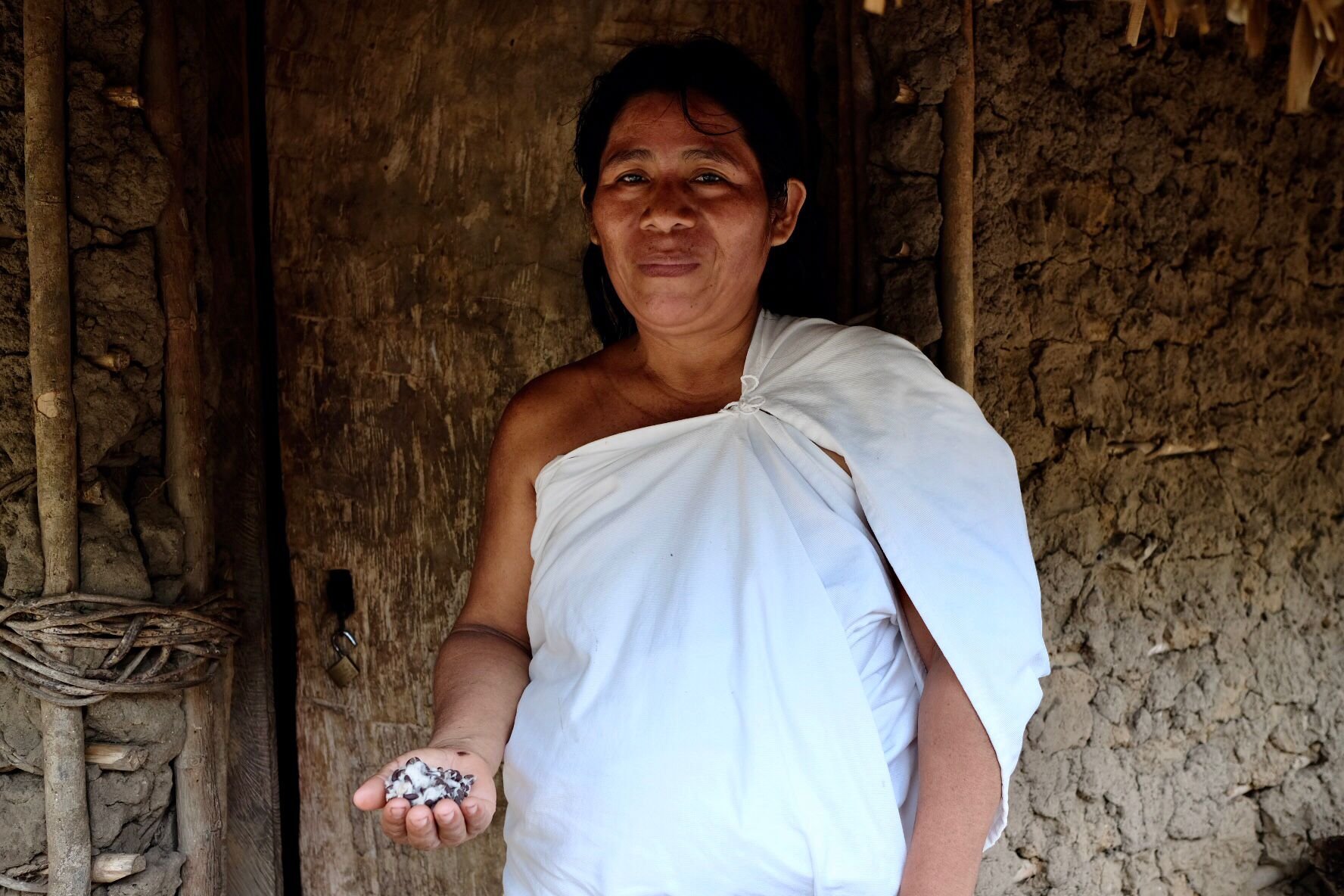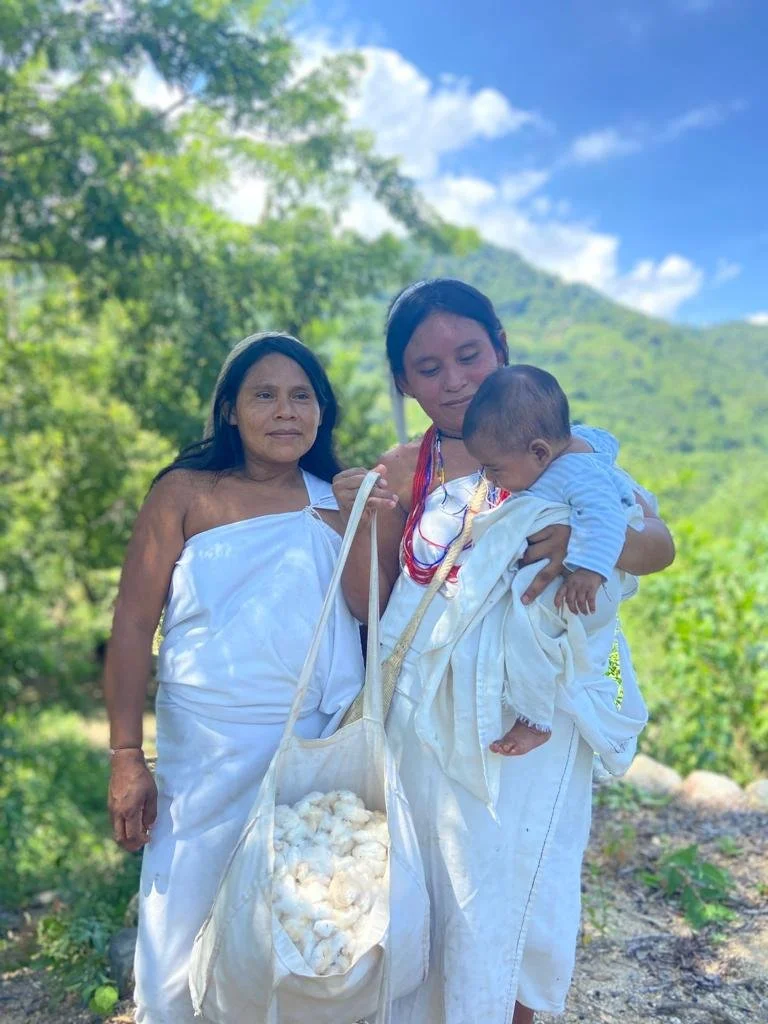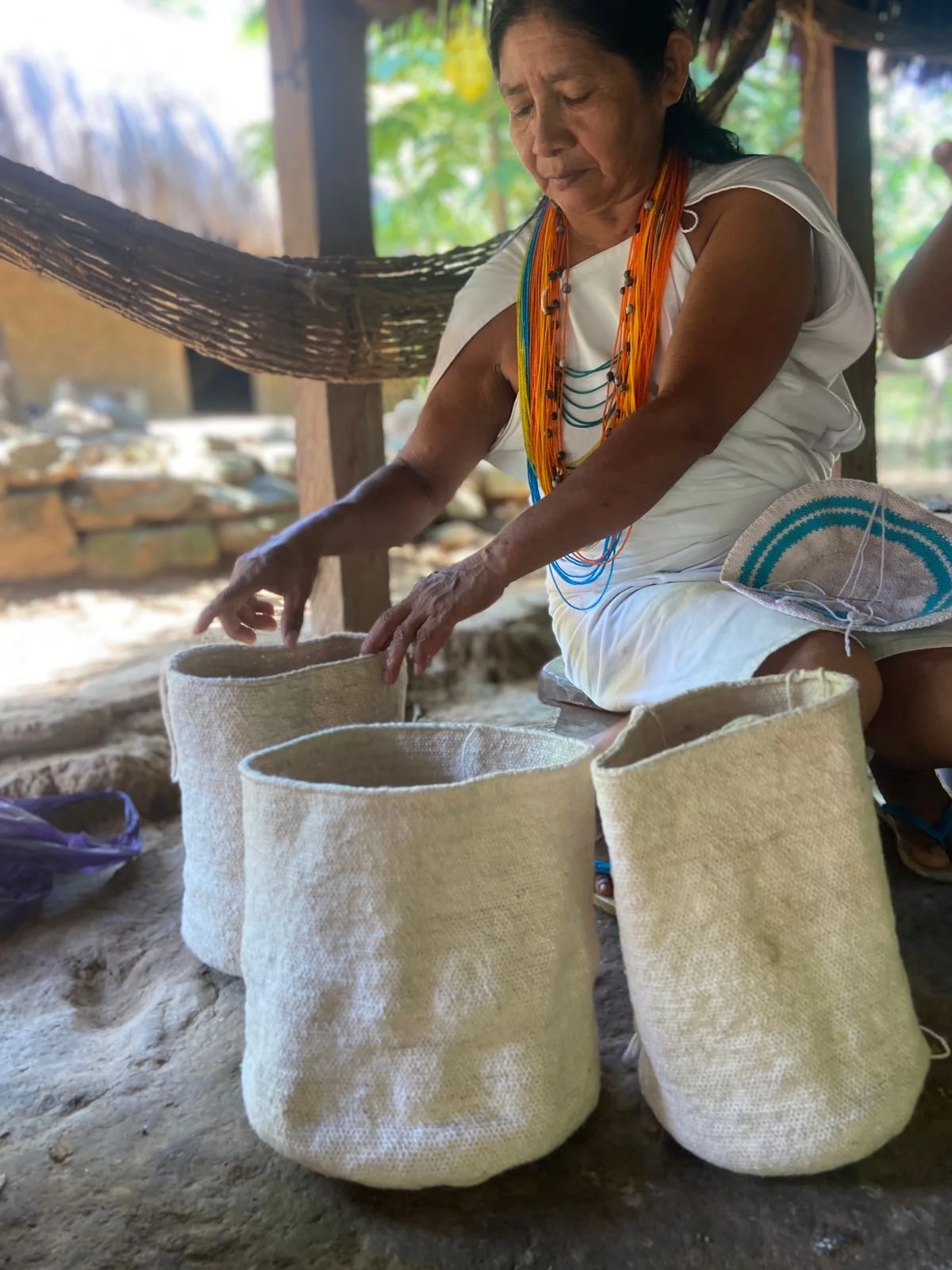
Fostering ancestral weaving techniques, women’s entrepreneurship & food justice among the indigenous people of The Sierras
Partner: Wiwa, Arhuaco and Kogui weavers
Launched: August 2023
Fostering ancestral weaving techniques, women’s entrepreneurship, and food justice among the Indigenous Peoples of La Sierra
CCF is supporting the propagation of heirloom scorpion cotton seed and its production into traditional craft. This very traditional fiber of great cultural relevance to the indigenous peoples of la Sierra Nevada de Santa Marta has been impacted by agricultural practices in the region and increasingly replaced by polyester. Ancestral weaving techniques are expressions of precolonial heritage and are ways in which indigenous women contribute income to their household economies.
Among the indigenous people of the Sierra Nevada de Santa Marta, weaving is an essential practice that binds them to their ancestral heritage—one could even say textiles are an original language. Weaving is used in the construction of homes as well as in clothing—women weave mochilas, a type of bag, while men work with looms and weave hats. In their complex textile patterns, the indigenous tribes—including the Kogui, Wiwa and Arhuaco—communicate everything from their lineage to the landscape they belong to. In fact, weaving is a cornerstone of the Kogi myth of origin, in which the 9 worlds of creation are held together by a giant spindle. As a woman spins fiber into thread, the connection between the dimensions of the worlds is activated, and the thought realm is made material reality.
Cotton, which the Kogui believe was divinely given, is the traditional material used in weaving—particularly white scorpion cotton (Gossypium barbadense) and colored heirloom cotton varieties (black, light green and brown), which were long prized for their beauty and sturdiness. But the seeds of scorpion cotton are much more delicate to propagate than other cotton species, and in recent decades have fallen out of favor, replaced by cheaper and more colorful synthetics that are harmful to the environment. The sacred colored cotton varieties are still alive in their memory, but less present in the landscape.
When CCF visited Sierra Nevada de Santa Marta in May 2023 and learned that the rare scorpion cotton seeds and other native varieties still existed, we resolved to stimulate the planting of scorpion cotton, enlivening the relationship with the seeds that belong to them through feminine entrepreneurships and organic seed delivery.
We are collaborating with three collectives of Arhuaco, Wiwa and Kogui weavers to spin scorpion cotton from la Sierra Nevada de Santa Marta (heirloom seed) and weave bags based on the traditional indigenous designs with Tigre de salón, Mercedes Salazar and Kunsamu.
The ways in which women collaborate in order to weave on-demand are the great capital of this project: in each case, they find the way to sustain their collective way of operating to gain an individual benefit, trust, and long-term relationship with the project. What discourages the weavers the most is the act of separating the fiber from the seed, a task that takes skill and time away from their garden and children. In order to sustain these entrepreneurships, we are planning either to commission a design or to purchase a cotton gin that could ease the process.
In the next phase with the weavers, we are working with the Colombian Ministry of Commerce, who have a program for indigenous communities who were the victims of armed conflict and want to become entrepreneurs, to legally approve the projects and to scale up our partnerships.
Impact Overview:
$25,000 anticipated investment
The weaving program has initiated with 4 collectives of Arhuaco, Wiwa, and Kogui weavers located in the Rio Ancho river basin, Palomino River basin, and Buritaca River Basin, some of whom will also grow scorpion cotton seed.



